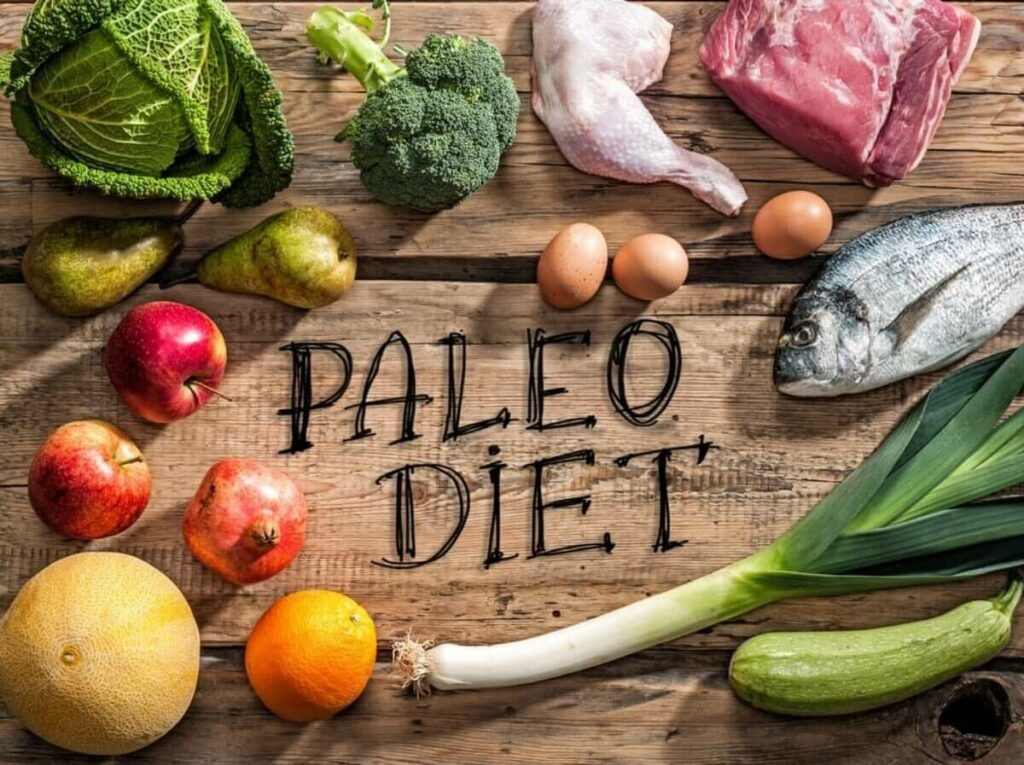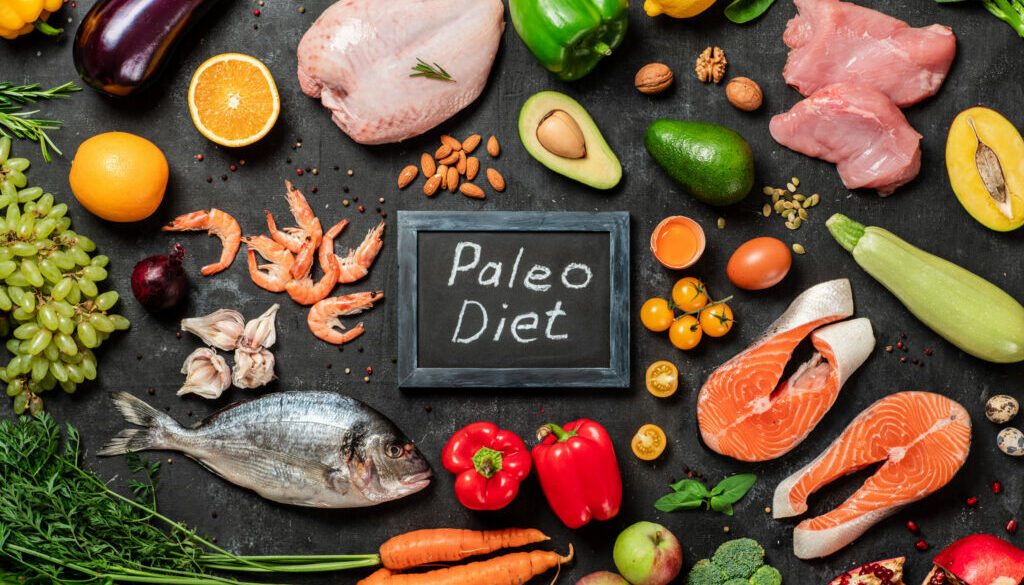The Paleo Diet: Unearthing the Caveman’s Nutrition
The Paleolithic diet, commonly referred to as the Paleo Diet, has gained significant popularity in recent years. This dietary approach revolves around consuming foods that our ancestors, the Paleolithic people, would have eaten thousands of years ago. By mimicking their nutritional patterns, the Paleo Diet aims to optimize our health and well-being. In this article, we will explore the principles, benefits, potential drawbacks, and expert opinions surrounding the Paleo Diet.
What is the Paleo Diet?
The Paleo Diet places a strong emphasis on consuming whole, unprocessed foods. It encourages the exclusion of modern agricultural products such as grains, legumes, and dairy. Followers of the Paleo Diet prioritize the consumption of high-quality protein sources, healthy fats, vegetables, fruits, nuts, and seeds. This way of eating is often referred to as a “stone-age” or “caveman” diet due to its resemblance to the diet of our ancient ancestors.
The Caveman’s Nutrition:
While our sources of food may have evolved over time, our physiological makeup remains quite similar to our Paleolithic predecessors. The Paleo Diet recognizes this and aims to provide our bodies with the nutrients they are genetically adapted to thrive on. By incorporating whole foods rich in vitamins, minerals, and antioxidants, the Paleo Diet meets our nutritional needs much like our ancient ancestors.

Benefits of the Paleo Diet
- Weight loss and improved body composition: The Paleo Diet’s focus on whole, nutrient-dense foods naturally leads to weight loss and improved body composition. By eliminating processed foods and added sugars, many individuals experience a reduction in body fat and an increase in lean muscle mass.
- Increased energy levels: By providing the body with nutrient-dense foods, the Paleo Diet can help improve energy levels. While processed foods often cause energy spikes and crashes, whole foods stabilize blood sugar levels, providing sustained energy throughout the day.
- Reduced inflammation and improved gut health: The Paleo Diet promotes the consumption of anti-inflammatory foods, such as omega-3 fatty acids and antioxidants. By avoiding processed foods and potential allergens like gluten, followers of the Paleo Diet often experience reduced inflammation and improved gut health.
Potential Drawbacks of the Paleo Diet
- Nutrient deficiencies: While the Paleo Diet is rich in many nutrients, certain vitamins and minerals may become deficient if adequate planning is not undertaken. For example, the absence of dairy can lead to a lower intake of calcium if not compensated for through other food sources.
- Limited food choices: Removing grains, legumes, and dairy from the diet can restrict food choices, making it more challenging to adhere to the Paleo Diet in certain situations. This limitation can be particularly difficult for those who follow specific dietary preferences or have cultural dietary requirements.
- Cost implications: A diet emphasizing high-quality meat, organic produce, and other Paleo-approved ingredients may come at a higher cost compared to a typical Western diet. This financial implication can deter some individuals from adopting or sustaining a Paleo lifestyle.
How to Start the Paleo Diet
Transitioning to the Paleo Diet can be a gradual process. Here are a few steps to help you get started:
- Clear out your pantry: Remove processed foods, grains, legumes, and dairy products from your pantry to minimize temptation.
- Shop for Paleo-friendly ingredients: Stock up on high-quality protein sources such as lean meats, poultry, and fish. Choose organic fruits and vegetables, nuts, and seeds. Opt for healthy fats like avocado oil, coconut oil, and olive oil.
- Meal preparation and planning: Prepare meals and snacks in advance to ensure you have Paleo-friendly options readily available. Incorporate a variety of ingredients to keep your meals interesting and nutritionally balanced.

Addressing Common Concerns
Is the Paleo Diet sustainable in the long term?
While the Paleo Diet may seem restrictive at first, there are countless delicious and nutritious recipes that can be enjoyed. With proper planning and creativity, the Paleo Diet can be sustainable in the long term.
Yes, it is possible to enjoy social occasions while following the Paleo Diet. Opt for Paleo-friendly alternatives, and communicate your dietary preferences with friends and family to ensure suitable options are available.
How to handle cravings for forbidden foods?
Cravings for forbidden foods can be challenging to overcome. It’s important to find satisfying alternatives within the boundaries of the Paleo Diet. Experiment with Paleo-friendly recipes and indulge in moderation to satisfy cravings.
Expert Opinions on the Paleo Diet
A. Supportive Arguments:
- Improved nutrient density: Supporters of the Paleo Diet argue that by focusing on whole, unprocessed foods, individuals are more likely to consume a wide variety of nutrient-dense foods. This can lead to a higher intake of essential vitamins, minerals, and antioxidants.
- Reduced reliance on processed foods: Many experts believe that the high consumption of processed foods in modern diets contributes to various health issues, such as obesity, diabetes, and heart disease. The Paleo Diet promotes the elimination of processed foods, which can potentially improve overall health.
- Anti-inflammatory effects: By emphasizing foods with anti-inflammatory properties, such as omega-3 fatty acids and antioxidants, the Paleo Diet aims to reduce inflammation in the body. This, in turn, may help alleviate symptoms of chronic conditions like arthritis and improve overall well-being.
B. Criticisms and Counterarguments:
- Nutrient deficiencies: Critics argue that the exclusion of entire food groups, such as grains and dairy, can lead to potential nutrient deficiencies if not adequately compensated for through other food sources or supplementation. This is particularly concerning for nutrients like calcium, vitamin D, and fiber.
- Lack of scientific evidence: Some experts argue that while the Paleo Diet may have its merits, there is a limited amount of scientific research directly supporting its claims. The available studies have been small in scale or short-term, making it difficult to draw definitive conclusions about its long-term effects on health.
- Unsustainability and restrictive nature: The restrictive nature of the Paleo Diet, particularly the exclusion of grains, legumes, and dairy, may make it challenging for some individuals to adhere to in the long term. Critics argue that long-term adherence is crucial for any diet to provide lasting benefits.
- Individual variation: Critics point out that not everyone will benefit equally from the Paleo Diet. Personal factors such as genetics, activity levels, and individual health conditions can play a significant role in determining the suitability and effectiveness of the diet for each individual.

Conclusion:
The Paleo Diet offers a unique approach to nutrition, drawing inspiration from our ancient ancestors. By prioritizing whole, unprocessed foods and avoiding modern agricultural products, the Paleo Diet aims to optimize our health and well-being. While it has its benefits, it’s essential to approach this dietary choice with careful consideration and ensure adequate nutrient intake. With the right planning and understanding, the Paleo Diet can be a sustainable and rewarding way of eating.
FAQs
- Is the Paleo Diet suitable for everyone?
The Paleo Diet can be suitable for many individuals; however, it may not be ideal for those with specific dietary requirements or medical conditions. It is always recommended to consult with a healthcare professional before making significant dietary changes. - Can the Paleo Diet help with weight loss?
Yes, the Paleo Diet can support weight loss due to its emphasis on whole, nutrient-dense foods and the elimination of processed options. However, individual results may vary, and weight loss success ultimately depends on various factors, including overall calorie intake, physical activity, and lifestyle. - Can I enjoy desserts while following the Paleo Diet?
While traditional desserts may not align with the Paleo Diet’s principles, there are numerous Paleo-friendly dessert recipes available that use natural sweeteners and alternative ingredients. These can provide a satisfying and healthier option for those following the Paleo Diet. - Are there any scientific studies supporting the Paleo Diet?
Scientific research on the Paleo Diet is ongoing, with some studies suggesting potential benefits such as improved glucose tolerance and cholesterol levels. However, more long-term studies are needed to fully understand its impact on overall health. - Can I combine the Paleo Diet with other dietary approaches?
It is possible to combine the principles of the Paleo Diet with other dietary approaches, such as vegetarianism or ketogenic diets. By incorporating the core principles while making suitable adjustments, individuals can create a personalized, sustainable approach to nutrition.
Also Read:
The Ultimate Guide to Glowing Skin: Tips and Tricks



